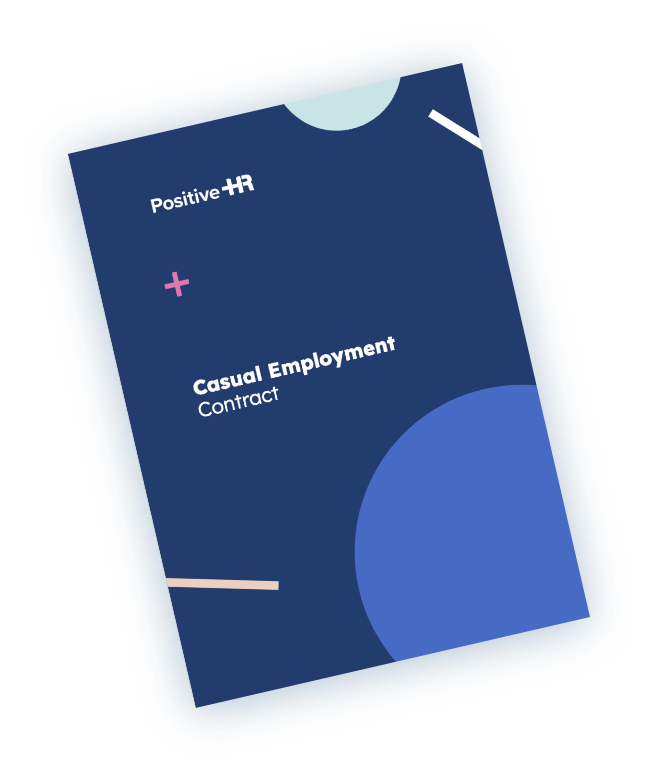Most small business leaders or owners will find themselves needing to recruit talent that may assist them in growing their business. Employees who have the passion and are naturally motivated to service your customers and contribute to your business growth can be the best leaders compared to those who demonstrate leadership skills, but are not willing or interested in delivering on expectations or acting as part of the business culture. If you’ve been on the sidelines when it comes to hiring or experiencing some challenges in the recruitment process, you may need to review your best practices in recruiting your team.
What some of you may not know is that I have an extensive recruitment background and have also owned small businesses, whereby I faced the challenges of recruitment first hand. In 2019, can we honestly still rely solely on the Internet and Seek and nothing more? I think not. Here are some of my top recruitment tips for small businesses and the importance of getting the right fit.
1. Analyse, Plan and Know:
Perhaps you have suffered a business financial loss? Or had a customer complaint? Don’t rush into the recruitment process before taking time to analyse the business position, environment, current needs and skill gaps. I have seen too many small businesses rush into the recruitment process which has led to a bad hiring decision and poor turnover (as a result of “not a good fit”) and as a result, higher cost to the business in time, training and monetary. Spend the time thinking about your structure, is this position actually needed, what does it look like, what skills does the team lack, what is crucial for this person to be successful. Think about the culture you want to cultivate. Know what you have to offer – if you don’t offer the highest salary in the market, think about having great well being initiatives or perhaps you have an excellent flexible working policy. The more you analyse and plan before you enter the recruitment process, the more effective, efficient and cost-saving it will be.
2. Passion and Strong Questions:
Yes, talent and skills are crucial, but you must also consider whether your candidates have a passion for working with your team and your business. When I speak to clients on this point, they typically ask me “how do you assess if they are passionate about my business during an interview”. You are able to assess passion in several different ways during an interview.
Did your candidates perform critical pre-interview research to get more details about your organisation? I remember my first role with a multinational organisation – I read every financial report, annual report, tweets and LinkedIn articles I could find for the past 2 years!
Are they passionate and enthusiastic during the interview? During the meeting, candidates should demonstrate their passion, top achievements, tasks that get them excited, mainly using stories of their previous employment experience. Such questions will enable you to evaluate whether or not candidates or potential employees, would be aligned with the business culture, or are just looking for any job.
By bringing your mission, vision, purpose and values forward, prospective employees can gain an understanding of what the company stands for and determine whether or not the are in alignment.
3. Preparation and Invest in Interview Guides:
Recruitment is a skill, and a difficult skill for most. It takes practice to know what questions to ask and when, be able to pick up on queues during the interview, analyse possible areas for improvement in the candidate, read body language and tone and so on. I have coached many small business owners on various interviewing techniques and provided the tools for them to be confident in running interviews. One of the simplest tips I provide is preparation. Read the candidates CV and Cover Letter, review their LinkedIn and peruse their social media accounts (especially if it is for a marketing role – to get a flavour of style).
You should already have a very good picture of this person and understand the history. Go into the interview with a detailed interview guide. Include deep-diving, probing questions. Behavioural based questions. Questions that will give you the ability to walk away with knowing they have exactly complete that task before in the previous role. Interview guides will also provide you with a good structure, assisting the flow of the meeting and ensuring you do not forget those vital questions. With time and practice, you will find yourself not needing the guides as questions for specific roles will be second nature.
4. Apply Already Established Relationships:
When I review recruitment strategies for businesses, I like to audit what they currently have in place. 9/10 clients say “we post the advert on Seek and wait for applicants”. Sorry to say, but gone are the days where this strategy alone works. Yes, post on Seek still. Yes post to your business LinkedIn and share through your personal LinkedIn. And yes, make a pretty canvas and post on your instagram for marketing and branding. But then take a moment to think.
Think about the already established relationships you could be tapping into. Have you asked your internal staff for referrals? Do they know someone at the competitor that they think could be a great asset to the business? I placed 8 people in a multinational I worked for, all of whom I was directly friends with. 4 of those people I had only contacted for referrals, as it turned out, they were passively looking for a new role themselves. If you are seeking an accountant – ask your business accountant if they have come across any top talent lately, it may be they weren’t recruiting at the time and remember someone. If you are looking for a Venue Manager – go to your favourite bar and ask the bartender if they might know somebody that could be interested. Tap into your relationships.
5. Be Honest:
Want to know a secret to an employee hitting the ground running?… Being honest and transparent during the interview! Obviously, I am not saying to communicate every little challenge, or potential difficult colleague the candidate could face. However, it is important to be honest, for example, about your management style and expectations. If it is a sales role and the candidate asks “how is the territory performing”, don’t say “business is great, we are sitting above target”, when it is actually underperforming. This will not attract the right candidate to meet the requirements. Don’t try to “oversell” the role, articulate the responsibilities as they are. Yes, speak about possible future progression, just don’t promise progression if the business has absolutely no scope for additional responsibilities or career growth for this employee to progress into.
Every hire you make can impact the dynamic of the business and individual teams. A good process not only finds great employees but saves time and money on replacing and training new employees.
Get in touch with a Positive HR Team Member today to discuss how we can assist you with your recruitment strategy, interview guides or simple tools to support your leaders.
enquiries@positivehr.com.au or +61 404 922 125









